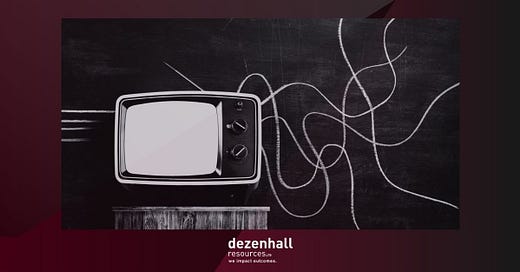Americans have never been more united on one issue: Disinformation and illicit spin are messing with public opinion. In other words, people believe what they believe only because they are being fooled. At root here is the idea that one’s enemies are uniquely pernicious — and powerful.
Several well-meaning initiatives are afoot to combat disinformation. I’m not optimistic because few believe a neutral arbiter could ever exist. Each wing of the political horseshoe believes it is the rational party. Moreover, there is little evidence that either side wants to be disabused of data that gives them pleasure. And that is what we’re talking about — the joy of seeing one’s worldview validated (and somebody else’s skewered).
“Disinformation” is a fraught word that is easily confused with news one doesn’t like. My clients easily confuse the two. People and organizations have strong mechanisms for self-protection. We will do almost anything to resist processing any notion that our ugliest selves could possibly be real. So we tell ourselves stories.
What to do?
There are no easy answers in this challenging climate, but I’ll suggest an exercise. It involves questioning conspiracy theories.
The crisis management business is one of navigating conspiracies. After all, many crises are conspiracies that imploded. Conspiracies simply do not work the way people think they do, and while there are conspiracies, the ones that work tend to be small and carried out by parties with a natural incentive to cooperate. Massive malfeasance with conspiratorial elements is more likely to be explained by culture and symbiosis than supernatural coordination.
Put differently, the political right could not be more wrong about things like the 2020 election being rigged, and the left couldn’t be more wrong about the wars of the early and mid-2000s being premeditated plays for oil. Indeed, both sides would play dirty if they could, but the basic laws of physics render such machinations close to impossible. Nobody is that well-organized, nobody is that loyal, and nobody ever keeps their mouth shut.
If you want to personally contribute to mitigating the spread of disinformation, start small. Set aside the fiction that “they” (your enemies) have “ways” (stealth and magic) and ask yourself: Based on everything you have witnessed in your lifetime about how people and institutions behave, are the kind of conspiracies that dominate the news possible? Could you and those you know accomplish such schemes if you tried — without getting caught? Is it possible that an outcome you dislike was caused by the momentum of events beyond the reach of centralized control?
Most importantly, dare to test this exercise on your tribe first.






Russia collusion? Hunter laptop? Sharing an address with a company directly involved with convoluting voter rolls making it easier “not😉” to cheat?
Gary after you ignore this as well as the 2000 mules documentary, (technology bad for this, but useful for arresting J6 grandmothers who aren’t ignorant and understand statistics and that 110% return of ballots is wrong that feel it’s okay to cheat because trump “bad” (for the enmeshed corrupt system)
maybe try reading this
https://www.impeachment.network/
Or just be like Time magazine and agree that the election was stolen from Trump (“but for a good reason” WE NEED MORE WAR)
https://time.com/5936036/secret-2020-election-campaign/
https://rumble.com/v2sco6g-eric-founder-david-becker-explains-eric-system-will-disproportionately-find.html
Terrific simple test. I laugh at the thought of alleged conspiracies that would need thousands of people to execute -- a fake moon landing or a rigged presidential election -- and to stay quiet about their plan. BTW, love your new newsletter.